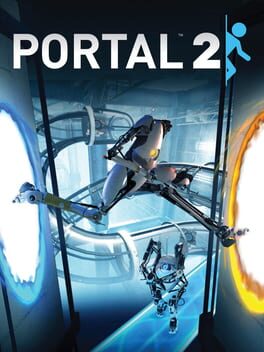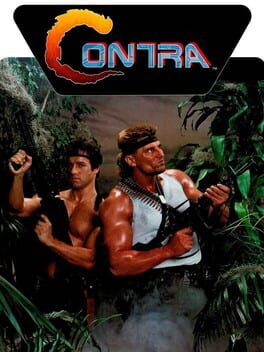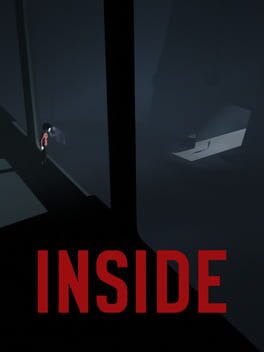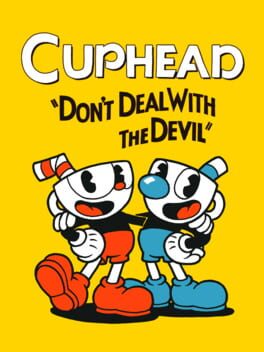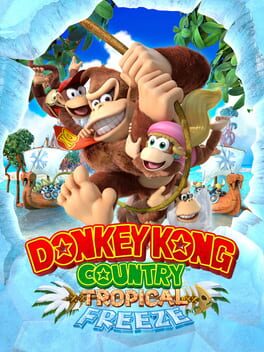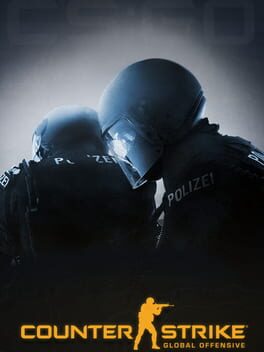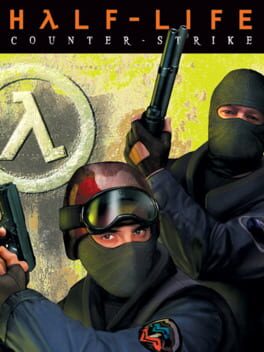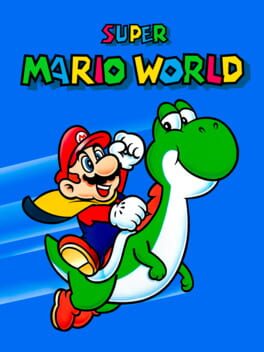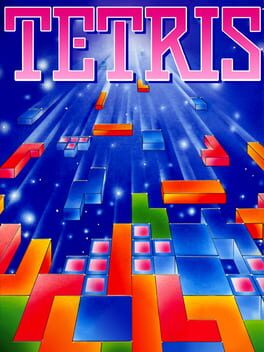thepaloalto
2011
If you were tasked with showing someone what a ‘video game’ was, and they had no prior experience with the medium, I think Portal 2 might be the best place to start. A game that does so much with a simple concept, just continues to reiterate, expand, reiterate again. Wrapped in a highly engaging story, a great balance of horror and comedy. It’s a pure game. I think there is something to be said that Valve--at the absolute peak of their power as a developer--said what they wanted to say with regards to single player gaming in 2011, and didn’t take another stab at that type of game for another 9 years.
1987
Everyone knows Nintendo Entertainment System games had a tendency to be overly difficult due to their recent ancestry with arcade cabinet design, and Contra is the best example of the difficulty curve somehow strengthening the appeal of a title. Even a play-through that takes advantage of the now famous Konami code, leaves the player wondering, what if? What if I played the game without the extra lives, what if I didn’t have the continues, what if I was actually feeding quarters into a machine for each mistake? The intensity of the bullet hell that is Contra shines through, and is a compelling play even today.
2016
Inside is maybe too easy, not many moments where you don’t immediately know what you should be doing next, but that’s not what it is there for. Instead it provides a wild little adventure that can be played in one sitting without overexerting yourself. It methodically unravels and pulls you further into the game, just to throw all your expectations out with one of the most exciting and outlandish end sequences that I can remember in any game that I’ve ever played. I’d love to live in a world where short thoughtful projects like this were commonplace, where you could look forward to a new one on a regular basis much like anticipating movies. Maybe that is in the cards for the future.
2017
The game is pretty much a boss rush mode, turned into a game. At times where they tried to turn it into a platformer, it didn’t quite stick the landing. That being said, it harkens back to a time where beating bosses was all about memorizing patterns and exploiting them as best you can. Maybe on that basis alone it wouldn’t have found it’s fan-base, but it’s surrounded by one of the greatest soundtracks of all time, and the graphics on display make me excited to see where others may push that concept forward in years to come. It’s pretty clear that Cuphead and Mugman could have staying power. I believe they even have a Netflix show on the horizon. The only thing holding it back is the methodical process used to create the animations necessary to facilitate their vision. So far, they’ve stuck to that process, and you have to appreciate that.
2001
The escort mission, a chinese finger trap for developers. Where games before it would only briefly utilize the escort to limited success, Ico lives, breathes, and thrives by the strength of this mechanic. Heavy theatrics, screenplay-like writing, and complex puzzling be damned. Instead, Ico wallows in the escort mission and any meaning of the game is derived from the relationship forced upon the player through this system. Many games since take clear inspiration from this title, and Naughty Dog hot off of Crash Team Racing may have learned a thing or two playing Ico.
1994
It’s unfortunate that I never got around to playing this until the release of the Super NES: Classic Edition in 2017. Even at that late date, the confidence in the design of the game was oddly refreshing. As you progress through the map, it continues to not only develop what your character is capable of, but also how traversal of the map takes place. It lends the feeling of a big open world to explore while implicitly guiding you through the map without the sense of linearity or incapacitation. It’s influence on Castlevania resulted in a new genre that I instinctively avoid despite my enjoyment of every game I’ve played within that definition.
In 1994 I received a VHS tape in the mail, the tape was labeled Donkey Kong Country EXPOSED. I watched that tape more times than I am readily willing to admit. What I am willing to admit, is that Tropical Freeze shattered opinions that had formed in my mind when I was six years old. Donkey Kong Country is not the king of the ‘Kong’ series. I’m still holding my breath for another entry here, but they sort of took the series to it’s natural endpoint in terms of game-play.
As I pursued my self inflicted torture that was post-graduate education in the United States of America, the comically lengthy reading assignments that were a nightly occurrence completely destroyed any energy that otherwise could have been used to socialize publicly. Thanks to Counter-Strike: Global Offensive, I was able to socialize every evening with angry, maladjusted gamers across the country in the comfort of my pajamas. This game and my teammates certainly didn’t need me, but god did I need them.
2000
I’ve certainly waxed poetic on this title countless times around the internet. I was lucky to come across this game as a local PC cafe opened up in my hometown. I had other friends who owned bicycles who were also interested in blasting awp shots at each other's virtual skulls. Not counting the typical birthday party or sleepover romp with Goldeneye, this game was my first dip into gaming as a social activity where the game itself was the focus. A good friend and I spent many a wonderful summer day holed up in our basements playing fy_iceworld for hours on end.
1990
A refinement of the game-play proposal of Super Mario Bros. 3, with a growth in its scope. I believe that this was probably the title that tied the fate of this series with the fate of Nintendo as a whole. There may have been a world where the transition to the Super Nintendo failed to recapture the hearts of many, and the Mario series could have gone the way of F-Zero. As it’s first big series, such a misstep could have drastically changed Nintendo’s approach entirely. Although many hold this as the best Mario game, I don’t think it pushes the envelope as far as it’s prior iteration did. At the same time, it is the definitive Mario experience. The biggest leap here is its sound design. The music and other accompaniments felt like the biggest ‘next gen’ aspect of this entry. I suppose the introduction of the Yoshi game-play mechanic was probably also revolutionary at the time.
I remember seeing this game at Target when I was twelve and having no idea what it was. I just knew that it looked like James Bond: The Video Game based on the box, and as a fan of the films and games I had to have it. If you had asked me that day what my favorite game of all time was I might have said something like ATV Off Road Fury. MGS2 showed me all sorts of wacky shit in the best way possible. Revolver Ocelot seemed extremely bad-ass to me at the time, and characters like Fatman had just the right amount of childish humor to keep me engaged even if the larger strokes of the game were likely going over my head. I was an idiot then--I am an idiot now--but even this idiot can appreciate that Sons of Liberty is an all-timer.
1989
Isn’t there a Tetris movie in the works, when is that supposed to come out? I think it started as a story about Alexey Pajitnov, and slowly got Hollywood-ed into some sort of sci-fi movie. Sometimes it is better to stick to the basics, and that is where Tetris succeeds. A newcomer to Tetris will understand the game-play loop within 5 minutes of picking up a controller. Yet no two games are alike, the player is always learning, becoming more efficient, getting better at thinking more steps ahead. It is all of video games culminating into a core experience. Tetris Effect came out in 2018, doesn’t change the formula at all, and somehow still ended up in plenty of game of the year discussions. Basics.
1996
I received this game and a Nintendo 64 for Christmas of 1996. I remember begging my parents to let me take it to my grandmother's home where us cousins--of which I was the youngest--typically played the same rotation of Sorry!, Monopoly, and Clue. That Christmas was different. All of us huddled around a wood paneled television, passing the controller after each star, and even replaying some of the stars because it a segment just seemed so fun as you watched along. We didn’t even make it to the first Bowser encounter that day because we were having so much fun just exploring the opening moments. I have never been very close with my extended family, and this is honestly one of my best memories with all of them.
I made the mistake of skipping this back when it came out because I didn’t have an endless amount of funds to go towards gaming, and I was likely completely absorbed in my obsession with Halo 2. I suppose my educational endeavors may have also factored into the decision. Therefore, it will never mean as much to me as Metal Gear Solid 2, where my adoration of the title is potentially blinded by a sense of nostalgia towards that period of my life. Nevertheless, Metal Gear Solid 3 is just as impressive as its predecessor. Multiple boss battles in this game likely rank as the most memorable boss battles in all of gaming. Not because of their challenge, or their wacky character design, but instead because of their ability to take pre-conceived gaming designs, turn them on their head, and challenge the player to rethink how they should be approaching the game. Next level stuff. Coupled with the fact that it was my family tradition to watch James Bond films repeatedly, and it was inevitable that I would fall in love with this game.
The much needed and long awaited rethinking of the Legend of Zelda franchise. Oddly enough, the end result was taking the series back to where it began, exploration. Could there have been better dungeons? I guess? Could the weapons have lasted a bit longer? Absolutely. But these choices were deliberate and further pushed the player to explore and interact with the environment around them. I believe that the endless criticism of the weapon degradation and the dungeons come from a failure to appreciate the underlying thesis of Breath of the Wild. Specifically, with the dungeons, they are the weakest part of the game--not because they aren’t as fleshed out as prior Zelda titles, but because they shouldn’t have been in this game at all. Instead, the shrines reinforce the exploration focus, and the game is stronger for it. The same is true of the weapon system, continually asking you to re-engage with the environment. Ultimately, it is a game that challenges you to push back against the game, and decide what you want to make of the experience. The further you dig in, the greater progression you feel, but it’s entirely optional. It’s a beautiful thing, and it’s bold. It was refreshing to see Nintendo still willing to take risks with even it’s most mainline franchises.
